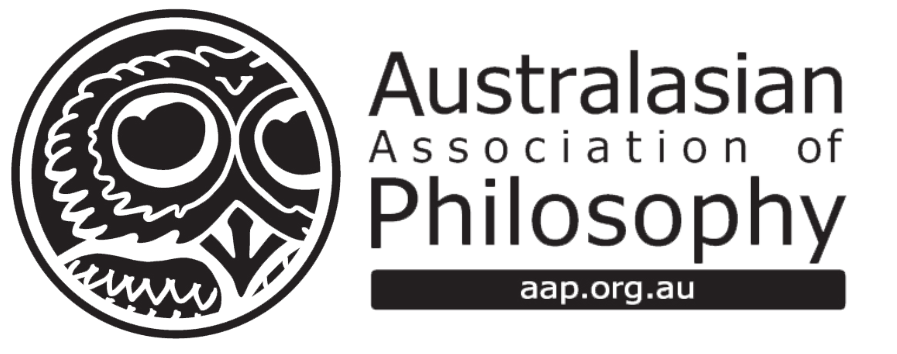
Innovation in Inclusive Curricula Prize
Sponsored by Taylor and Francis.
Awarded for the development of innovative approaches to teaching philosophy.
SUBMISSIONS NOW OPEN
More information about the prize, judging criteria & how to enter
2025 Winner

Luara Ferracioli
University of Sydney
PHIL 3663: Justice
Political philosophy confronts the need for self-reflection in an age where minority voices are demanding attention. The traditional canon is no longer acceptable as an entry point to philosophical debates that consider the grave injustices of colonisation, inequality, and discrimination. Dr Ferracioli’s course Justice takes this need for self-reflection seriously, and steers away from the standard figures who have been the focal point of political pedagogy. Rather than dropping these figures completely, Dr Ferracioli puts them in conversation with theorists who exist within the margins, exemplifying an image of what political philosophy could be if we treat inclusion as an imperative.
Dr Ferracioli’s course consists of a diverse reading list, most of which are women in philosophy. This is matched with a range of topics that are either central to political philosophy, such as foundational theories of justice, or still at the fringes vying for more awareness, such as colonisation. Her students, from across the humanities, greatly appreciated the class, particularly its emphasis on real-world issues, intellectual freedom, and collaboration over competition.
2024 Winner
Daryl Ooi
National University of Singapore
PH4213HM Comparative Philosophy
Daryl Ooi’s course on Comparative Philosophy challenges traditional notions of what constitutes philosophical inquiry by introducing students to diverse methodologies and perspectives. The syllabus is comprehensive, with an impressive range of non-Western philosophical texts and supplementary readings. As attested by unit and teacher evaluations, Ooi was able to foster a safe and inclusive environment, encouraging high participation. Overall, Ooi's course stands out for its innovation in content, pedagogy, and design.
2023 Winner

Nick Munn
University of Waikato
Environmental Ethics
Nick Munn’s Environmental Ethics course aims “to make Philosophy as a discipline more appealing to those who had not previously considered it”. The student feedback reflects success in this goal, with glowing reviews of the course content, structure and teachers. The design philosophy for this course was focused on the centrality of Mātauranga Māori to the practice of environmental ethics in Aotearoa/New Zealand. Indigenous knowledges are treated as equal to other sources of knowledge about environmental ethics. The Diversity Committee also commends Dr Munn for supporting students with disabilities to complete the course. Integrating diverse perspectives in the design of the materials, rather than as an add on which is limited to a specific week, broadens a wide range of students’ perspectives of philosophy and works to mainstream indigenous philosophies. The Committee congratulate Dr Munn for the design and delivery of a course that increases participation and understanding of diversity in philosophy.
2023 Commendation
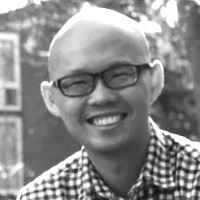
Chong-Ming Lim
Nanyang Technological University, Singapore
Ethics and Public Policy
2022 Winner

Sam Shpall
University of Sydney
Philosophy & Literature (PHIL2646)
sydney.edu.au/arts/about/our-people/academic-staff/sam-shpall
Dr Shpall’s course promotes diversity through its engagement with various philosophies and ideas, especially from South America, highlighting some traditionally underrepresented groups in typical courses taught in our region. The course is highly interdisciplinary which is to be commended in efforts to encourage more diversity in participation. Dr Shpall’s teaching award as well as syllabus speak well for him as an excellent educator, with glowing reviews from students who participated in this course. We congratulate Dr Shpall for broadening representation of minority voices and creating an evidently highly engaging and enjoyable experience through his course.
2021 Winner

Australian National University
Science in Society: Ethics, Public Policy and Scientific Practice
It can be a challenge to make a philosophy course attractive to non philosophy majors. Brown’s course, which emphasizes the relevance of philosophy to science and public policy, was able to successfully appeal to a broad range of students from HASS and STEM disciplines at the Australian National University. Using classical and non-traditional resources such as public philosophy and media, Brown’s curriculum tackles historical and contemporary ethical dilemmas, framed along the lines of injustice and social relevance.
The course brings attention to disparities in participation and platformed diverse voices in both science and philosophy. It is accessible to students with a range of backgrounds and it encourages them to think broadly about science and philosophy. Peer review and feedback ensure that students remain engaged and accountable to each other. Outstanding student evaluations from both times the course has been taught evidence its high quality.
The delivery and assessment respond to student needs and is supported by research on education and learning. The panel commends the lecturer for taking on the extra assessment tasks for effective learning. This is real dedication!

University of Queensland

University of Queensland
University of Queensland
Effective Thinking and Writing - UQ Critical Thinking Project
2020 Winner

Australian National University
Advanced Topics in Philosophy: Disobedience, Dissent, Resistance, and Rebellion
Ten-Herng Lai’s richly interactive course begins by centring the values and experiences of students, and then brings their experiences into conversation with a diverse range of philosophical perspectives and voices. In doing so, the course creates space for abstract theorising to engage with culturally mediated embodied experience. Not only does the course reflect the literature on issues such as disobedience, resistance, and Rebellion as it is – drawing on a wide range of scholars and activists – but the course ensures that students are aware of the range of voices that we find within philosophy itself. What’s more, by weaving a range of local and global insights together, the course not only showcases the significance of global voices for local change, but also the relevance of local challenges (drawing from Australasia for instance) for charting global change as well. Lai’s engaging and ‘open-access’ style showcases the practice of philosophy in ways that cultivate a culture of inclusion, epistemic humility, and critical reflection.
2019 Winner
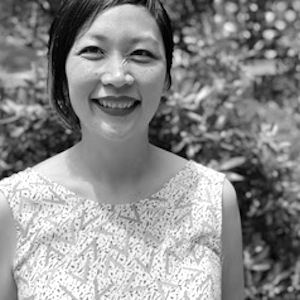
Helen Ngo
Deakin University
Justice and Equality
deakin.edu.au/about-deakin/people/helen-ngo
The judging panel unanimously decided to award the Prize for Innovation in Inclusive Curricula to Helen Ngo for her unit Justice and Equality. The first half of the unit focuses on grounding the students with a knowledge of the key movements in contemporary political philosophy, including utilitarianism, Rawlsian liberalism, libertarianism, Marxism, and communitarianism. In the second half the focus turns to racism, decolonial justice, feminism, transgender identities, and disability.
Rather than looking at these topics in isolation from the philosophical movements explored in the first half of the unit, Ngo links the new topics to political philosophy as traditionally conceived. For instance, Marxism is connected to decolonial justice through the work of Frantz Fanon; Rawlsian liberalism is discussed in relation to racism through the work of Charles Mills. The new topics are also discussed in relation to each other. For example, the week on transgender identities is related back to the week on feminism, and the tensions between feminist and transgender activism are explored, as are the possibilities for trans-feminist solidarity.
Ngo has radically altered the unit from previous years, assigning authors from a variety of underrepresented and marginalised groups. The unit also encourages the students to engage with real-world issues that are traditionally overlooked in undergraduate units in political philosophy. Ngo makes the case that these issues can both illuminate and pose serious challenges to existing political theories. Her unit is an excellent example of how to design a philosophy course that encourages diversity and inclusivity.
2018 Highly Commended

University of Sydney
2017 Winner
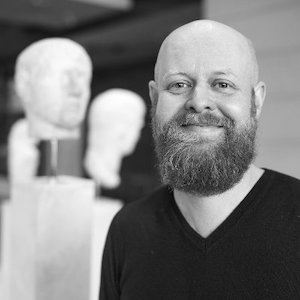
University of Sydney
The Philosophy of Human Rights
The course promotes inclusivity through careful attention to the authors represented within its curriculum, thus presenting to students a clear sense in which those engaged in important philosophical work can be from diverse backgrounds. This representation of diversity in philosophy is also carried through into the teaching team for the course, which displays a carefully managed gender balance. Finally, the course makes use of alternative methods of teaching, especially in tutorials, where inquiry and interaction are nurtured in an inquisitorial and collaborative learning space, thus supporting diverse styles of engagement. The judging panel found the course to be a high quality example of how to improve inclusiveness in the teaching of philosophy.
2016 Winner

University of Melbourne
History of Early Modern Philosophy
The prize's winner is Ruth Boeker's course History of Early Modern Philosophy (University of Melbourne). The course innovates with respect to a standard course in early modern philosophy both in its content and in its pedagogy: it focuses on the collaborative aspect of philosophy during the early modern period; and it mirrors that collaboration in team-based pedagogy within the course.
These innovations cultivate inclusiveness, not by diluting the challenge of the curriculum but by intensifying students' engagement. The course materials undermine the myth of the solitary male philosophical genius, instead underscoring the interaction of voices, including female voices, in a common philosophical conversation during the early modern period. The carefully planned pedagogical structure cultivates students taking an active role in creating a supportive learning environment for themselves and their peers within their teams. And finally, the continuous low-stakes assessment sustains engagement and builds skills, thereby preventing students being left behind.
The judging panel found the course overall to be of high quality and an excellent contribution to improving inclusiveness within the teaching of philosophy.
If you would like to receive more information about the course please contact
Ruth Boeker: shaps.unimelb.edu.au/about/staff/dr-ruth-boeker
Boeker task design and sample materials
Boeker Course Outline and Design

2014 Winner
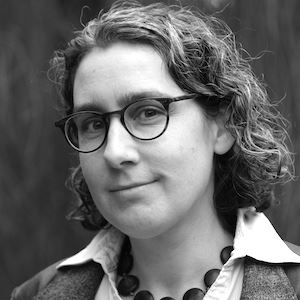
Michelle Sowey
Director, The Philosophy Club
The Big Questions Philosophy Mentoring Program
The judging panel unanimously decided to award the prize to The Big Questions philosophy mentoring program, submitted by Michelle Sowey, director of Melbourne-based organisation The Philosophy Club. This program has a two part structure in which: i) a cohort of undergraduate philosophy “mentors” are trained to facilitate collaborative philosophical inquiry amongst children, drawing on the “Philosophy for Children” model which has intellectual roots in American pragmatism. They are then placed in a low socio-economic status primary school setting where they facilitate philosophical inquiry with the children, with appropriate support, ii) the children receive an exposure to philosophical thought which is currently rare amongst low socio-economic status groups in Australasia, who typically do not reach University-level study.
The judging panel were impressed by the unique experiential learning in both philosophical practice and teaching which this program made possible, and by evidence that it achieved its aims of both broadening mentor’s philosophical practice and introducing our discipline to sectors of society that would not ordinarily encounter it. Although the program’s structure is unusual, the judges took into consideration that an important function of this prize is to encourage flexible thinking around the training of future philosophers. In her application Michelle argues that programs such as The Big Questions could play an important role in improving retention in our profession for individuals who are uncomfortable with a certain perceived combativeness in some aspects of its current culture, and instinctively prefer a more cooperative and collaborative model of philosophising. This claim seems worthy of further investigation.
Big Questions program aims, structure and scope, and program outline pdf
Big Questions Sample curriculum materials pdf
Big Questions - how academic philosophers can get involved docx
The Australasian Association of Philosophy offers an annual prize of for the development of innovative approaches to teaching philosophy. This is offered with a view to exploring ways in which undergraduate courses in philosophy can build the understanding and practise of an inclusive discipline, concerned to foster equal participation in the profession. The aims of the prize are to encourage professionals developing and improving their teaching portfolios to consider critically how philosophy is presented, and to be innovative in implementing practices of teaching that off-set well-known disparities of participation in the discipline, for instance along race and gender lines.
Judging Criteria
1. Significant innovation in curriculum that successfully promotes equity and diversity within the discipline, particularly with respect to underrepresented or marginalised groups in the profession, including those that undertake to decolonise and/or Indigenise philosophy curricula and/or
2. Innovation in pedagogy that successfully promotes broader participation in the discipline and/or
3. Adoption of strategies for engaging with real-world issues and justice in the classroom and/or
4. High quality in course design and delivery framed by the concern that philosophical education is also educating agency for valuing human diversity beyond the discipline and the classroom.
Resources for developing inclusive curriculum
Eligibility
The prize is open to individuals, or groups of individuals, teaching undergraduate philosophy courses in Australasian Universities.
The course must have taken place within 5 years before the date of application. The course convenor should be included amongst the applicants, unless prior approval is given to waive this requirement.
No person may win the prize more than once, and no course may be re-entered without substantial modifications..
Submission deadline: Friday 10th April 2026 8.00pm AEDT
Submit your entry HERE
Full details on Policy & Procedure can be found HERE (Requires Member Login)
This prize requires the collection of personal information. The way this personal information is used and distributed is detailed in the AAP Privacy Policy which can be found HERE. The AAP Privacy Policy forms part of the terms and conditions of this prize. By submitting a nomination, an applicant agrees to the usage of personal information as defined in the AAP Privacy Policy. Those nominating a third party for the prize should pay special attention to their obligation in notifying the third party of the usage and disclosure of their information as defined in the AAP Privacy Policy.
All enquiries to: admin@aap.org.au
